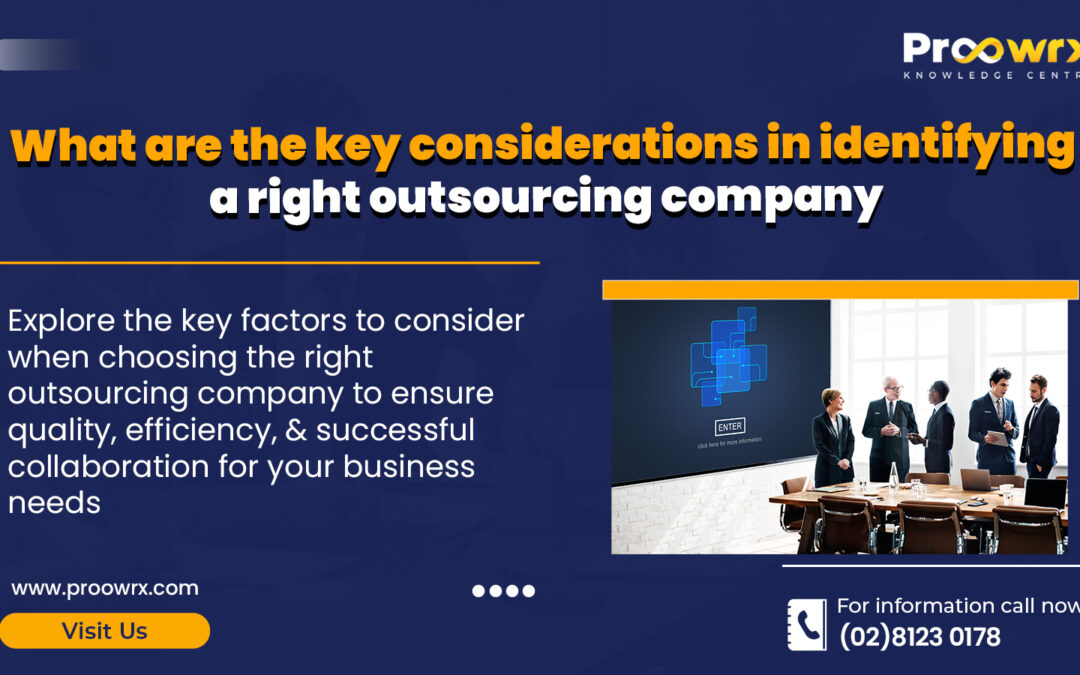Running a business today is challenging. You handle many tasks and manage long to-do lists. But what if you could save time and grow your business? That’s where outsourcing partnerships come in.
Forget the old way of outsourcing. Modern partnerships are different. They act like part of your team, helping you achieve your goals. They bring the skills you need so you can focus on your business growth. You’re in charge, and they’re your support, taking care of tasks so you can focus on growing.
We’ll discuss the benefits of these partnerships, how to find the right one, and how to build a strong relationship. Want to make your workload lighter and boost your business? Let’s get started!
Understanding Outsourcing Vs. Partnering
Managing your business can be overwhelming with so many tasks to handle. Outsourcing can be a big help by allowing you to focus on what you do best while others take care of different tasks. But it’s important to understand the difference between simple outsourcing and having a true partnership.
Traditional outsourcing is like hiring a temporary worker. They do their job without much concern for your overall success—it’s just a transaction.
An outsourcing partnership is different. It’s like having a teammate who is invested in both of your successes. You work closely together, communicate often, and share the same goals.
With a partnership, communication is clear, and you have established ways to stay in touch. Your goals are aligned, ensuring that your efforts benefit the company. If things change, your partner can adapt too.
This approach means they fit your needs better, and both sides take responsibility for good work. Building a strong outsourcing partnership can lead to long-term success and growth for your business. It’s a valuable advantage for your company’s future.
Why Consider an Outsourcing Partnership?
Do you want to save time for what really matters? A strategic partnership could be the solution. It’s like getting a reliable teammate who takes care of tasks so you can focus on growing your business.
Here’s how an outsourcing partner can be your secret weapon for success:
Optimizing Costs
Running a business comes with big expenses—payroll, software, office space. A strategic outsourcing partnership can cut these costs without sacrificing quality. Outsource tasks like IT support or software development to save on expenses and let your team concentrate on core activities.
Access to Specialized Expertise
Building a dream team in-house takes time, money, and luck. Outsourcing partners provide access to global talent, allowing you to hire specific skills when needed. For example, in Proowrx, a partner with expertise can help reduce risks and support growth.
Be More Efficient and Productive
If you’re overwhelmed with tasks, an outsourcing partner can help. They handle routine jobs, freeing your team to focus on what they do best. If you’re a Mortgage Broker and you’re overwhelmed with the mundane tasks of processing loan applications, outsourcing can handle it for you, letting your team excel in key areas. This boosts productivity and keeps everyone energized.
Be More Innovative and Agile
Innovation is crucial in today’s fast world, but routine tasks can block creativity. A good partner brings fresh ideas and new approaches. Their experience with various clients helps them spot trends your team might miss.
Scale Your Business
As your business grows, you might need more staff quickly. Outsourcing partners can help you scale up fast, whether you need staff for accounting, bookkeeping or mortgage loan processing. They provide the flexibility to expand when needed and contract when things slow down, keeping you competitive.
Global Expansion Opportunities
Want to reach customers worldwide? Expanding into global markets can be challenging, but the right outsourcing partner can make it easier. They understand local cultures, speak the language, and manage regional details. Partnering smartly can be your key to global success.
How to Find the Right Outsourcing Partner?
Finding the right outsourcing partner can feel like an impossible task. You need a company that fits well with yours and understands your goals.
With so many options, how do you choose the best one? Don’t worry; we’ve got you covered. Here’s a step-by-step guide to finding the right outsourcing partner.
Define Your Outsourcing Goals and Needs
Start by clearly understanding your goals and needs. Identify the specific tasks or projects you want to outsource and the outcomes you expect.
Determine how you will measure success:
- Are you looking to reduce costs and improve efficiency?
- Do you need specialized skills or want to scale your operations?
Knowing your objectives helps you communicate your expectations to potential partners and evaluate their ability to meet your needs.
Conduct Thorough Market Research
Do comprehensive research to find the right partner. Use various resources to gather information about potential partners. Reviews can help you shortlist potential partners. Look for firms with expertise, reliability, and on-time delivery. Check their client reviews and case studies to understand their competence and past performance.
Evaluate Partner Capacity
Make sure potential partners have the necessary resources. They should have a skilled workforce and the technology to handle your project.
Ask about the size of their team and their expertise. Choose a partner who can scale their resources up or down based on your project needs.
Value Expertise as an Important Criterion:
When assessing partners, focus on their technical expertise. Look for:
- Case Studies: Their experience with similar projects.
- Technical Expertise: Knowledge of relevant technologies, platforms, frameworks, and tools.
- Skill Sets: The skills and experience of their team members.
- Access to the Latest Technology: Use of ltest technology and industry trends.
- Complex Problem-Solving Skills: Ability to tackle complex issues.
- Passion for Your Project: Genuine interest and enthusiasm for your project.
Consider Cultural Fit and Communication
Cultural fit is important but often overlooked. Differences in language, discussion styles, and time zones can create challenges. Focus on:
Language: Ensure the team has good language skills for clear communication.
Contact Channels: Establish clear channels for regular meetings, progress updates, and transparent reporting.
Schedule & Time Zones: Consider time zone differences and how they affect your project. Aim for some overlap in working hours and have strategies to manage time zone issues.
Engagement Models & Agile Methods
Choose the right engagement model for your project. It could be a fixed-price model, staff augmentation, dedicated development team, hybrid, or ODC model. Each has its pros and cons.
Discuss these options with potential partners to find the best fit for your project needs and budget. Also, consider using agile methods for more efficient and flexible project management. Agile breaks projects into smaller parts, ensuring continuous improvement and timely delivery. Ensure your partner is familiar with Agile practices and can implement them effectively.
Ensure Data and Intellectual Property Safety
Data security and intellectual property protection are crucial. Check that the partner has strong security measures, complies with relevant regulations, and has secure data storage. Discuss their data protection policies to ensure they meet your requirements.
Request a Proposal and Review the Outsourcing Contract
Request detailed proposals from your shortlisted partners. The proposal should cover the scope of work, timelines, deliverables, pricing, and terms and conditions. Compare the proposals for completeness, clarity, and alignment with your goals.
The outsourcing contract formalizes your relationship with the partner. It should detail each party’s roles, project milestones, payment terms, and dispute resolution mechanisms. Ensure it includes provisions for confidentiality, intellectual property rights, and termination clauses. Review the contract carefully and seek legal advice if needed to protect your interests.
Risk Mitigation Strategies
Outsourcing comes with some risks, like data security and ongoing project growth. To protect your business, use these risk management strategies:
Key Risk Mitigation Strategies:
Due Diligence: Do thorough research before choosing an outsourcing partner. Check their financial stability, past performance, technical skills, and references.
Data Security: Put strict data security measures in place to protect sensitive information. Use encryption, secure access controls, and regular audits to keep your data safe.
Legal Protections: Include legal protections in the contract. Make sure there are clauses for intellectual property rights and termination. These protect your business from legal issues.
Business Growth Planning: Plan for business growth to handle potential problems. Include backup resources and disaster recovery plans. Have contingency plans ready for critical tasks.
Regular Audits: Perform regular audits to check if the outsourcing partner is following the contract terms. Ensure they meet security standards and performance goals. Audits help spot risks early and take corrective actions.
Bottom Line
Running a business is hectic. You handle many roles and chase opportunities. But what if you could focus on your strengths? That’s where outsourcing comes in. Choosing the right outsourcing partner gives you expert help.
Imagine having a team focused on the tasks you outsource. They bring new ideas and skills, allowing you to grow your business. You’re not just delegating tasks; you’re forming a strategic partnership.
A good partner becomes an extension of your team, working with you to drive growth. Ready to harness the power of outsourcing? Use what you’ve learned to find the perfect partner and act now.
Let’s chat about how we can be the perfect outsourcing partner for your business. Schedule a Discovery call today!

